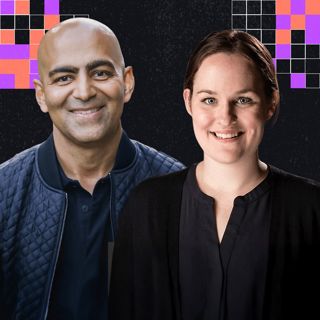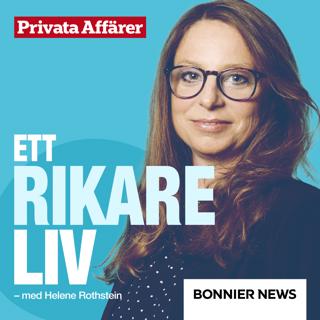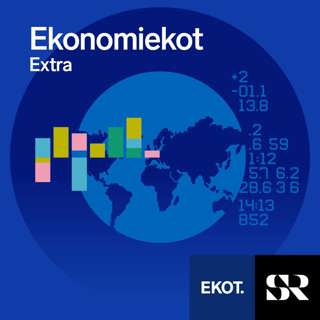
a16z Podcast: Startups and Pendulum Swings Through Ideas, Time, Fame, and Money
Everything old is new again when it comes to startup ideas and how technology innovation happens. But practically, how does that apply to starting and/or working at startups — especially since the default state of every company is “dying in obscurity”? In this episode of the a16z Podcast, Marc Andreessen and 21 co-founder Balaji Srinivasan cover everything from deciding what ideas to work on and the optimal type of startups to work at, to the funding environment and pendulum swings of deciding when to IPO. They also discuss the VC “formula” of weighting product vs. market vs. team; the full-stack approach to cracking industries that tech could never enter before; and recent tech trends and news including The DAO, AI, VR/AR and the “Instagrammification of everything”, more. And where does Andreessen stand on the “moral dilemma” of whether entrepreneurs should drop out of college or not? Would Srinivasan still do a PhD today? People’s early career goals should be about maximizing learning skills and minimizing “personal burn”, they argue. But no matter what, Andreessen believes, smart people — from all industries, not just tech — should build things. It’s also easier to get through startup hard times when there’s an ideological mission motivating you, observes Srinivasan. This episode is based on a May 2016 conversation that was recorded as part of the Annual Distinguished Speaker Series with Thought Leaders in Technology, hosted by engineering honor society Tau Beta Pi at Stanford University. photo credit: Ryan Jae/ The Stanford Daily
30 Maj 201653min

a16z Podcast: Trade, Commerce, Manufacturing, Immigration, & Cuba -- with Penny Pritzker
"We really want Apple here... Would you please call Tim Cook?" That's just one of the things Penny Pritzker, the 38th Secretary of Commerce has heard as she and the U.S. Department of Commerce engage in "commercial diplomacy" around the world. Their job is to help overcome trade barriers, represent the interests of entrepreneurs and drive administrative policy change as it relates to technology, and be on the frontline of helping small and medium-sized businesses in markets all around the world -- from Indonesia to Europe to Cuba. So what else have they found about how other countries perceive U.S. tech companies? Especially as they wrangle with issues such as immigration (and not just for high-education visas); E.U. Safe Harbor (which is more difficult for smaller companies) and its update, the transatlantic Privacy Shield agreement; and finally, the TPP or Trans-Pacific Partnership multinational trade agreement (for which some have expressed intellectual property concerns)? And then... since the previous policy of isolation didn't work, how is the U.S. government's policy of engagement with Cuba working out so far? Priztker shares perspectives on all this and more in this episode -- including views on focusing on advanced manufacturing; gathering data from weather sensors and census surveys; and counting the gig economy in GDP -- with a16z's head of policy and regulatory affairs, Ted Ullyot. The conversation took place at Andreessen Horowitz' inaugural Silicon Valley comes to Washington, D.C. tech and policy event in April 2016.
27 Maj 201630min

a16z Podcast: Managing Uncertainty -- Layoffs and Talent
In many ways, managing startups is about managing uncertainty: in product, market, and... people. So what happens when changes in the business require changes -- and sometimes reductions -- in the workforce? In this episode of the podcast, a16z partners Shannon Schiltz and Alex Rampell share both their professional and personal experiences with layoffs -- from why they happen to what to do (and what not to do).
26 Maj 201629min

a16z Podcast: Automation, Jobs, & the Future of Work (and Income)
There's no question automation is taking over more and more aspects of work and some jobs altogether. But we're now entering a "third era" of automation, one which went from taking over dangerous work to dull work and now decision-making work, too. So what will it take to deal with a world -- and a workplace -- where machines could be thought of as colleagues? The key lies in distinguishing between automation vs. augmentation, argue the guests on this episode of the a16z Podcast, IT management professor Thomas Davenport and Harvard Business editor Julia Kirby, who authored the new book Only Humans Need Apply: Winners and Losers in the Age of Smart Machines. But the argument isn't as simple as saying humans will just do the creative, emotionally intelligent work and that machines will do the rest. The future of work is complex and closely tied to the need for structure, identity, and meaning. Which is also why linking the discussion of things like "universal basic income" to the topic of automation isn't just unnecessary, but depressing and even damaging (or so argue the guests on this episode).
23 Maj 201626min

a16z Podcast: Innovation vs. Invention at Google I/O
Innovation or invention? Platform or app? Vertical or horizontal? Strategy or tactic? Does the smartphone eat VR? And (not to get all existential about it or anything but), what is an app, really? a16z partners Benedict Evans, Connie Chan, Kyle Russell, and board partner Steven Sinofsky explore these tensions in this episode of the podcast as they share some quick reactions to Google I/O, Google's annual developer conference, where the company announced a number of new platform products -- for VR to messaging to the smart home. Maybe most new things are really old things, but maybe those distinctions don't matter as artificial intelligence leaps into how we live our lives, automating (and anticipating) things in a new way...
20 Maj 201626min

a16z Podcast: Airspace as the Next Internet-Like Platform
One of the most important lessons of the internet age is what happens when we give people -- including companies, developers, engineers, hobbyists, and yes, even a few bad (or dumb) actors -- a new platform, along with the freedom to innovate on top of it. For example, who could have predicted how profoundly the internet would change our economy, given how it started off as a research project -- one where commercial applications were actually frowned upon in the early days? Now, the U.S. is on the cusp of opening up another such platform for commercial and social innovation: airspace (think drones, the non-military kind). There's so many use cases for drones that we already know about, but what about new business use cases? And then, on the policy front, how do we calculate the risk of innovation on a platform made up of atoms (drones) vs. bits (the internet)? What are the pros and cons of registration? Because even though drones are like flying smartphones controlled by software, they're also hard objects that could fall out of the sky ... or go places where no one could go before, for better or worse. The guests on this episode of the a16z Podcast -- continuing our D.C. and tech/innovation/policy theme -- share their thoughts on safety, privacy, paper airplanes, and what they think are some of the most exciting things now possible in airspace. Joining the conversation are Washington, D.C.-based Mercatus Center tech policy lead Eli Dourado, along with graduate research fellow Samuel Hammond; Airware founder and CEO Jonathan Downey; and SkySafe CEO and co-founder Grant Jordan.
18 Maj 201640min

a16z Podcast: The Cloud and The Public Sector
It almost seems like gospel -- or at least a given -- today for startups to embrace the cloud. Services like AWS have powered an entire generation of startups that can now spin up new applications, new businesses, and new experiments with very little investment in new infrastructure. But what about governments -- both in the U.S. and around the world -- trying to adopt the cloud? How do they approach this widely known (yet still nebulous) concept of THE CLOUD? Especially given sometimes competing considerations around security and compliance with the desire to innovate? Teresa Carlson, Vice President of Worldwide Public Sector for Amazon Web Services, shares tales from the field in this episode of the a16z Podcast -- continuing our on-the-road series from Washington, D.C. Adopting a cloud-based approach is one of the ways to democratize entrepreneurship, but how do countries and governments, not just companies and entrepreneurs, think about this, especially given the tendency towards "balkanization" of the cloud? All this and more in this episode...
17 Maj 201629min

a16z Podcast: The Art of the Regulatory Hack
If the next 20 years of startup-led tech innovation are going to be about addressing massive problems -- like health, energy, transportation, cities, education, and more -- it will mean more directly confronting (instead of stealthily bypassing) regulatory barriers and incumbent-driven regulatory capture challenges. So how can startups "growth hack" in a highly regulated sector? In this episode of the a16z Podcast -- the second of our podcasts from our most recent on-the-road trip in Washington, D.C. -- Evan Burfield, the co-founder and co-CEO of D.C.-based global incubator 1776, outlines the techniques (really, an art form) of "regulatory hacking". It's not just a way to enter a market, but a way to create a market ... much like Elon Musk did with Tesla: using the very system that drops lemons to make lemonade. The technique begins by understanding informal and formal power; "power mapping" the influencers all across the chessboard (from the top down and bottom up); telling your startup brand/product story in a particular way; and then making your moves. Just as there's a playbook for navigating Silicon Valley, there's one for navigating D.C., argues Burfield; and while many entrepreneurs instinctively just want to get regulations out of the way, sometimes, you just need to know how to play the game.
17 Maj 201634min






















